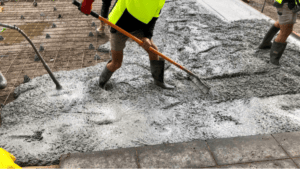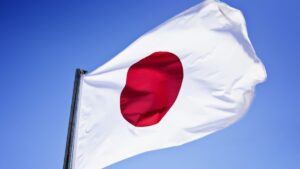Zeotech set to file international patent for its synthetic zeolites technology

Zeotech Limited (ASX:ZEO) is gunning for an international patent for its novel mineral processing technology to manufacture synthetic zeolites. Pic:Getty Images
An international patent will open the door to Zeotech’s global expansion plans, as it looks to commercialise its synthetic zeolites technology.
Zeotech Limited (ASX:ZEO) is gunning for an international patent for its novel mineral processing technology to manufacture synthetic zeolites.
The company had earlier received a favourable outcome from the examiner, with an International Preliminary Report on Patentability, reporting positive findings on the novelty and inventiveness of Zeotech’s technology.
This follows the company’s Patent Cooperation Treaty (PCT) application in May 2020 for the mineral processing technology that it co-developed with The University of Queensland.
As a result of the finding, the application has now progressed to the national phase of the patent granting procedure, which will allow Zeotech to proceed with patent filings in the following jurisdictions:
- Australia
- Canada
- Chile
- China
- India
- Japan
- Republic of Korea
- Eurasia – covers Russia and Kazakhstan
- Thailand
- United States of America
- Europe – various jurisdictions including France, Germany, Italy, Spain, and the United
Kingdom
As patents are only granted in each country by the relevant national patent office, the national phase filings are a key requirement in the process for seeking to have a patent granted internationally.
The opportunities for synthetic zeolites
Zeotech has a proprietary mineral processing technology developed by UQ for the low-cost production of synthetic zeolites.
Synthetic zeolites are basically manufactured aluminosilicate minerals with a sponge-like structure. They are essentially molecular sieves with tiny pores that make them useful as catalysts or ultrafine filters.
UQ’s Chemical Engineering team has demonstrated up to 70% reduction in energy consumption in the thermal activation stage, and up to 80% reduction in production time when producing synthetic zeolites.
As a potential use case, Zeotech and UQ will evaluate the performance of synthetic zeolites in the field of carbon capture, a market that’s projected to reach US$6.15 billion by 2027.
Zeotech also working with Griffith University to develop agricultural products that may offer access to carbon markets.
Zeolites are said to act almost like a magnet that can hold heavy metals, ammonia, low level radioactive elements, toxins, petrochemicals, and gases – which could play an important role in a cleantech applications.
As lithium battery demand grows, for example, it’s anticipated the lithium refinery sector will produce significant amounts of leached spodumene residue, so those refineries will be looking for tailings management solutions.
Zeolites are already being used as an effective substitute for harmful phosphates in powder detergent, now banned in many parts of the world because of blue green algae toxicity in waterways.
And due to the material’s versatility, the use case for zeolites is potentially endless.
For example, Zeotech was approached by the Indian High Commission regarding the use of synthetic zeolites as adsorbents in oxygen concentrator units during the height of the pandemic, due to the decreasing supplies of medical grade oxygen in the country.
The patent filing jurisdictions announced today will also ensure that Zeotech is able to explore potential mine and process tailing feedstock opportunities within the countries mentioned above.
Zeotech sees an international patent as a pathway to commercialisation, especially with licensing and joint venture opportunities.
This article was developed in collaboration with Zeotech, a Stockhead advertiser at the time of publishing.
This article does not constitute financial product advice. You should consider obtaining independent advice before making any financial decisions.
Related Topics
UNLOCK INSIGHTS
Discover the untold stories of emerging ASX stocks.
Daily news and expert analysis, it's free to subscribe.
By proceeding, you confirm you understand that we handle personal information in accordance with our Privacy Policy.








